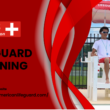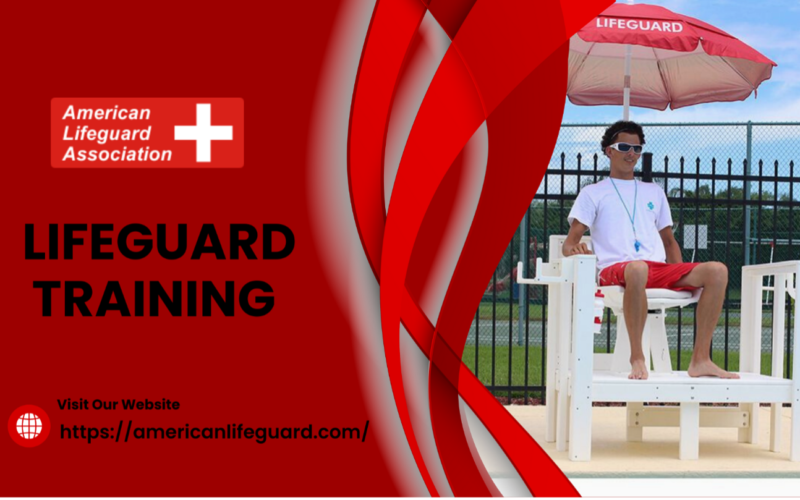If you love the water and have a passion for helping others, becoming a lifeguard might be the perfect career path for you. But before you can start saving lives, you’ll need to go through some rigorous training.
The first step in becoming a lifeguard is to find a training program. Many community centers, schools, and American Lifeguard offer lifeguard training courses that will teach you the skills you need to keep swimmers safe. These courses typically last a few weeks and include both classroom instruction and hands-on practice.
During the course, you’ll learn about water safety, rescue techniques, and CPR. You’ll also practice swimming laps and performing rescues in the pool. At the end of the course, you’ll be tested on your skills and knowledge, and if you pass, you’ll receive your lifeguard certification.
But training doesn’t stop there. Once you’re certified, you’ll need to stay up to date on your skills and knowledge. Many lifeguard agencies require ongoing training and continuing education to maintain certification. You’ll also need to stay physically fit and practice your swimming and rescue skills regularly.
Becoming a lifeguard is a rewarding career that requires dedication and hard work. If you’re up for the challenge, find a training program near you and start your journey to becoming a lifeguard today.
How to Become a Swim Instructor: The Training You Need
Teaching someone to swim is one of the most rewarding jobs you can have. As a swim instructor, you’ll be responsible for helping people of all ages learn this valuable life skill. But before you can start teaching, you’ll need to go through some training.
The first step in becoming a swim instructor is to become a proficient swimmer yourself. You should be able to swim all four strokes (freestyle, backstroke, breaststroke, and butterfly) and be comfortable in deep water.
Next, you’ll need to find a swim instructor training program. Many community centers, schools, and American Lifeguard offer courses that will teach you the skills you need to become a successful swim instructor. These courses typically last a few weeks and include both classroom instruction and hands-on practice.
Teaching techniques
During the course, you’ll learn about teaching techniques, water safety, and how to create lesson plans. You’ll also practice teaching swimming skills to other students. At the end of the course, you’ll be tested on your skills and knowledge, and if you pass, you’ll receive your swim instructor certification.
But training doesn’t stop there. Once you’re certified, you’ll need to stay up to date on your skills and knowledge. Many swim instructor agencies require ongoing training and continuing education to maintain certification. You’ll also need to continue practicing your own swimming skills to ensure that you’re able to demonstrate proper technique to your students.
Becoming a swim instructor is a great way to share your love of swimming with others while also making a difference in their lives. If you’re ready to take the plunge, find a training program near you and start your journey to becoming a swim instructor today.
American Lifeguard Training: What You Need to Know
If you’re interested in becoming a lifeguard, one of the best ways to get started is by taking a training course with American Lifeguard. American Lifeguard is a nationally recognized program that provides comprehensive lifeguard training for individuals who want to work in a variety of aquatic settings, from pools to open water.
The American Lifeguard training course covers a range of important topics, including water safety, rescue techniques, and CPR. The course is designed to teach you everything you need to know to keep swimmers safe and respond quickly in emergency situations.
The training is divided into both classroom instruction and hands-on practice, so you’ll have plenty of opportunities to apply what you’ve learned in real-world situations. You’ll learn about water rescue techniques, spinal injury management, and how to use equipment like rescue tubes and backboards.
Technical Skills
In addition to the technical skills you’ll learn, American Lifeguard also emphasizes the importance of effective communication and teamwork. You’ll learn how to work with other lifeguards and emergency responders to provide the best possible care for swimmers in distress.
Once you complete the American Lifeguard training course, you’ll be certified to work as a lifeguard in a variety of settings. However, it’s important to note that certification requirements may vary depending on your state or local regulations. Be sure to check with your local aquatic center or health department to ensure that you meet all the necessary requirements to work as a lifeguard.
Overall, American Lifeguard provides a comprehensive training program that equips aspiring lifeguards with the skills and knowledge they need to keep swimmers safe. If you’re interested in a career as a lifeguard, consider taking a training course with American Lifeguard to get started.
Benefits of Lifeguard Training with American Lifeguard
Becoming a lifeguard with American Lifeguard can provide a variety of benefits beyond just gaining important lifesaving skills. Here are a few reasons why you should consider taking a training course with American Lifeguard:
Comprehensive Training
American Lifeguard’s training course covers everything you need to know to work as a lifeguard, from water rescue techniques to CPR. You’ll also learn about the importance of teamwork and communication, which are essential skills for any emergency response situation.
Nationally Recognized Certification
American Lifeguard’s certification is recognized nationwide, which means you’ll be qualified to work as a lifeguard in a variety of aquatic settings, from pools to open water.
Career Opportunities: Once you’re certified as an American Lifeguard, you’ll be qualified to work as a lifeguard in a variety of settings, which can open up a range of career opportunities. You could work at a local pool or beach, or even pursue a career as a lifeguard instructor or supervisor.





